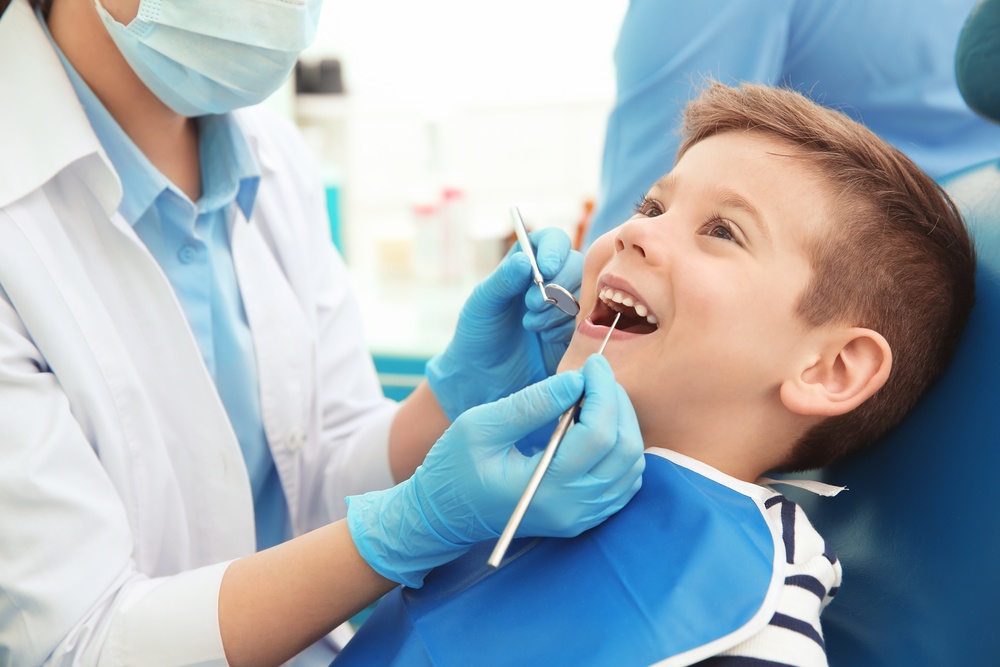Finding the best pediatric dentist who can meet your child’s oral health care needs isn’t easy. But it can be done. With a little homework, time, and patience, you can find an understanding talented dentist to keep your child’s smile healthy and attractive. We’ll discuss five key ways to do it.
1. Know Your Child’s Needs
Know your child’s needs and make a list of them. Is he or she comfortable in a dental chair, or anxious and nervous? If anxiety is an issue, the best pediatric dentist is one who is gentle and understanding. It may helpful to find a dentist who offers some form of mild sedation to help your child relax during appointments.
Also consider the condition of your child’s teeth. Ask yourself:
- Are my child’s teeth healthy and aligned, or will orthodontic treatment be needed in the future?
- Does my child have TMJ issues?
- Are there any problems with swollen, irritated, or bleeding gums?
A more experienced pediatric dentist will be alert to those issues and refer your child to a specialist as needed.
2. Ask for Referrals
Ask friends, family members, neighbors, or co-workers if they know a good pediatric dentist. If you receive a referral, remember to ask:
- How long their children have been patients of this particular dentist
- What they (including the kids) do or don’t like about the dentist
- About the dental hygienists and how well they clean teeth and interact with children
A person may love his or her dentist, but not be so pleased with the hygienist, or vice versa. The best pediatric dentist for someone else might not be the right dentist for your child. Consider what qualities in a pediatric dentist are important to you. Also ask about the dentist’s fees for services.
3. Look for the Pediatric Dentist’s Credentials
Look for pediatric dentists who show a real interest in dentistry and in children.
- Does the dentist’s website indicate how frequently he or she participates in continuing education?
- Does the dentist only meet the minimum requirement, or more?
- Is the dentist a member of certain dental organizations, or is he or she board-certified?
The best pediatric dentists are serious about continuing education, and their education, training, and credentials show it. A dentist’s credentials provide you with information on his or her skill, experience, and interest in healthy smiles.
4. Look for Best Pediatric Dentist Reviews
Dentists often have reviews or testimonials on their websites. Also look for Google+, Yelp, or other reviews. Reviews are not always positive. Pay attention to each review and whether or not parents give details about what they like or dislike about a dentist’s services. Do the reviews really indicate that this might be one of the best pediatric dentists in your area?
5. Schedule Consultations
Once you identify a few dentists that might be right for you, it’s not necessary for your child to become a patient right away. Schedule a consultation with each dentist and take your child with you. It will be brief, but it will give you a chance to see the office, get a feel for the environment and the staff, and briefly chat with the dentist. A consultation can reveal how your child will be treated as a patient and whether or not this is the best dentist for your child’s needs.
Don’t Be Afraid to Switch Until You Find the Best Pediatric Dentist
Your child’s oral health and smile are important. If you’ve done everything you can to find the best pediatric dentist only to discover that it’s not the right fit, don’t be afraid to switch. Save your list of possibilities for a dentist and move on to the next one. Your child’s dental records can be transferred to another dentist. If you decide to switch, ensure that it’s to a dentist with whom you have some familiarity through a consultation or a recommendation that gives you great confidence.
This post is sponsored by Naperville Dental Specialists, the office of Dr. Anthony LaVacca. Our office is conveniently located to Warrenville, Bolingbrook, and North Aurora IL.



































